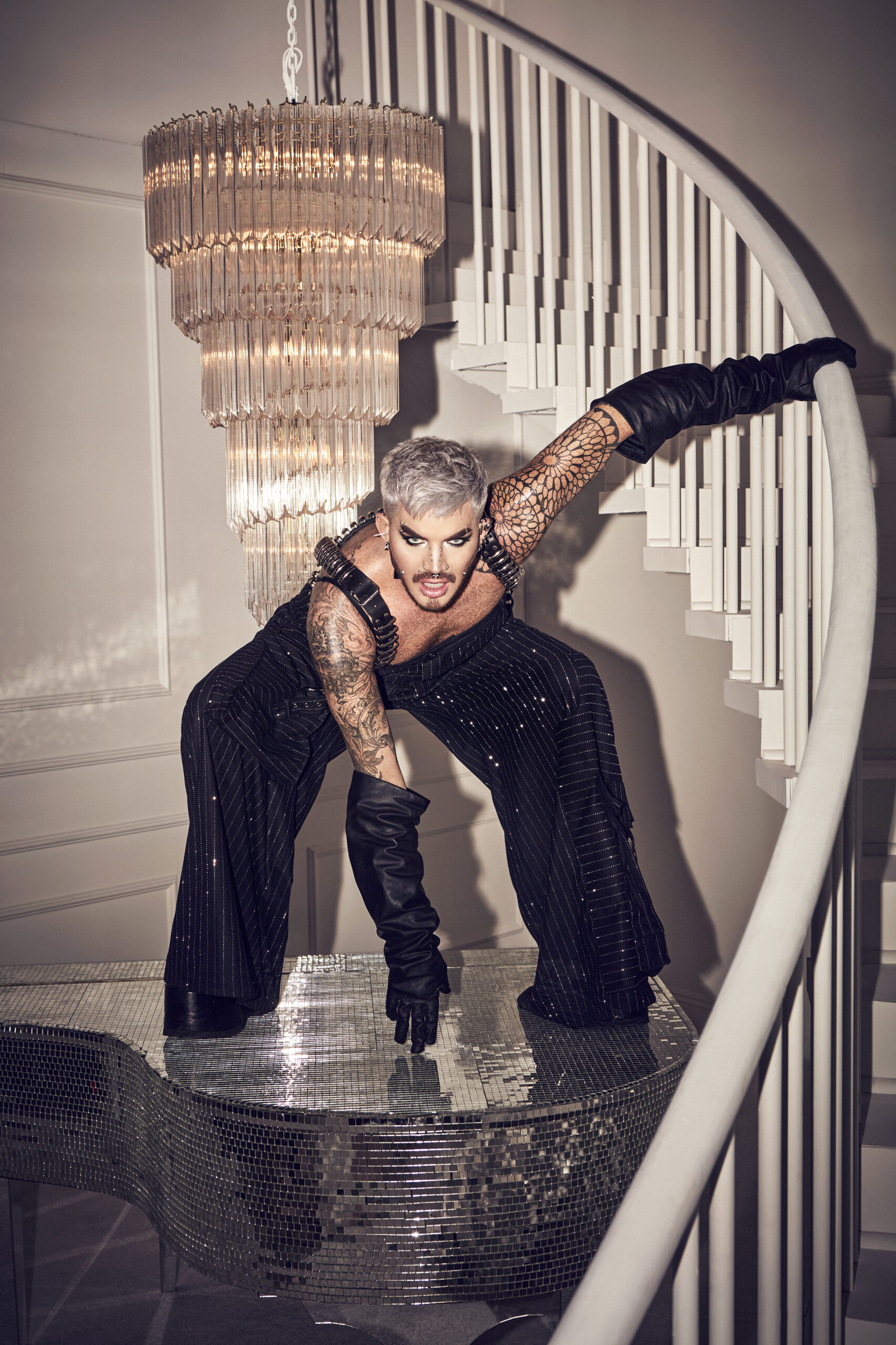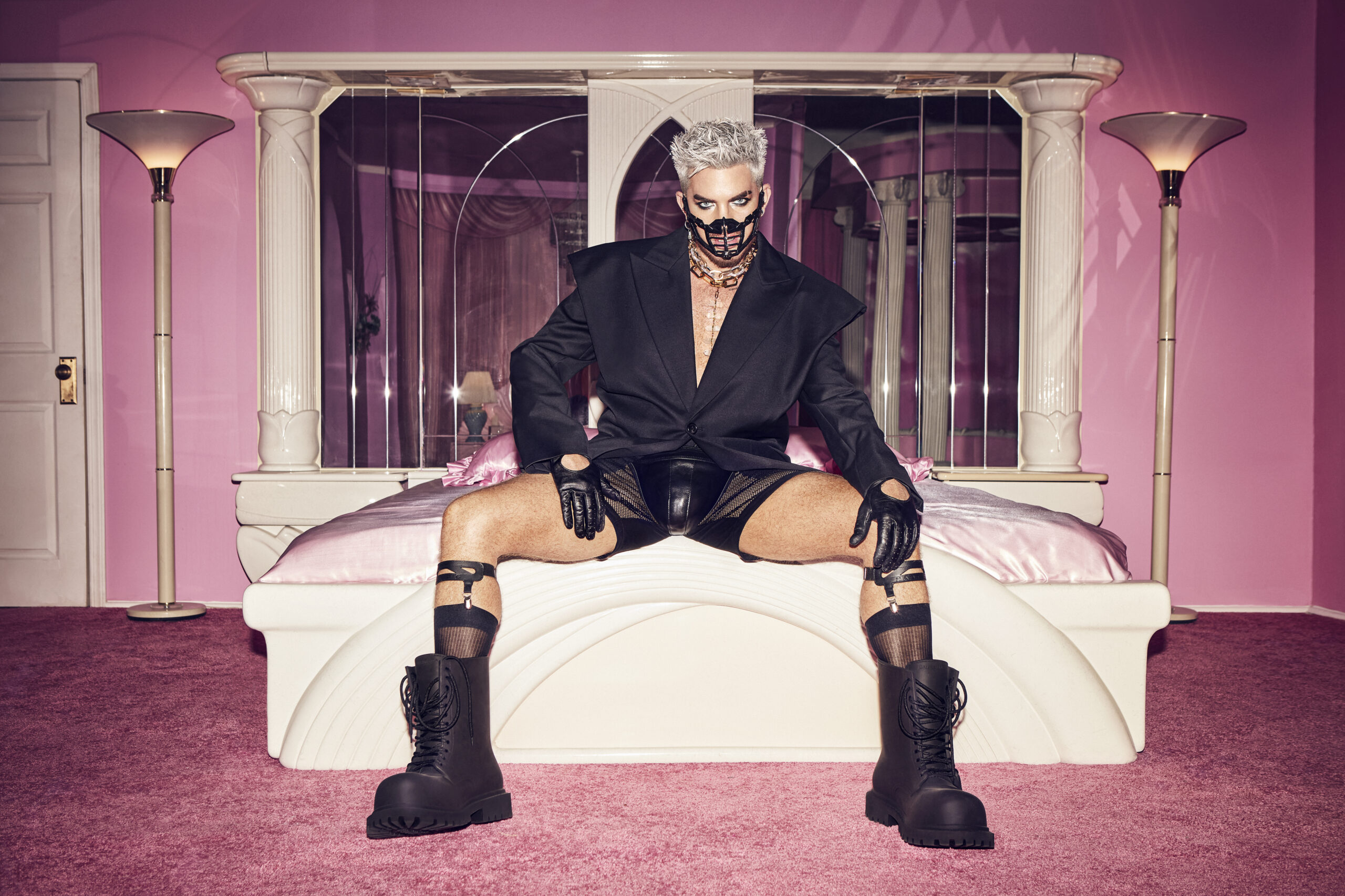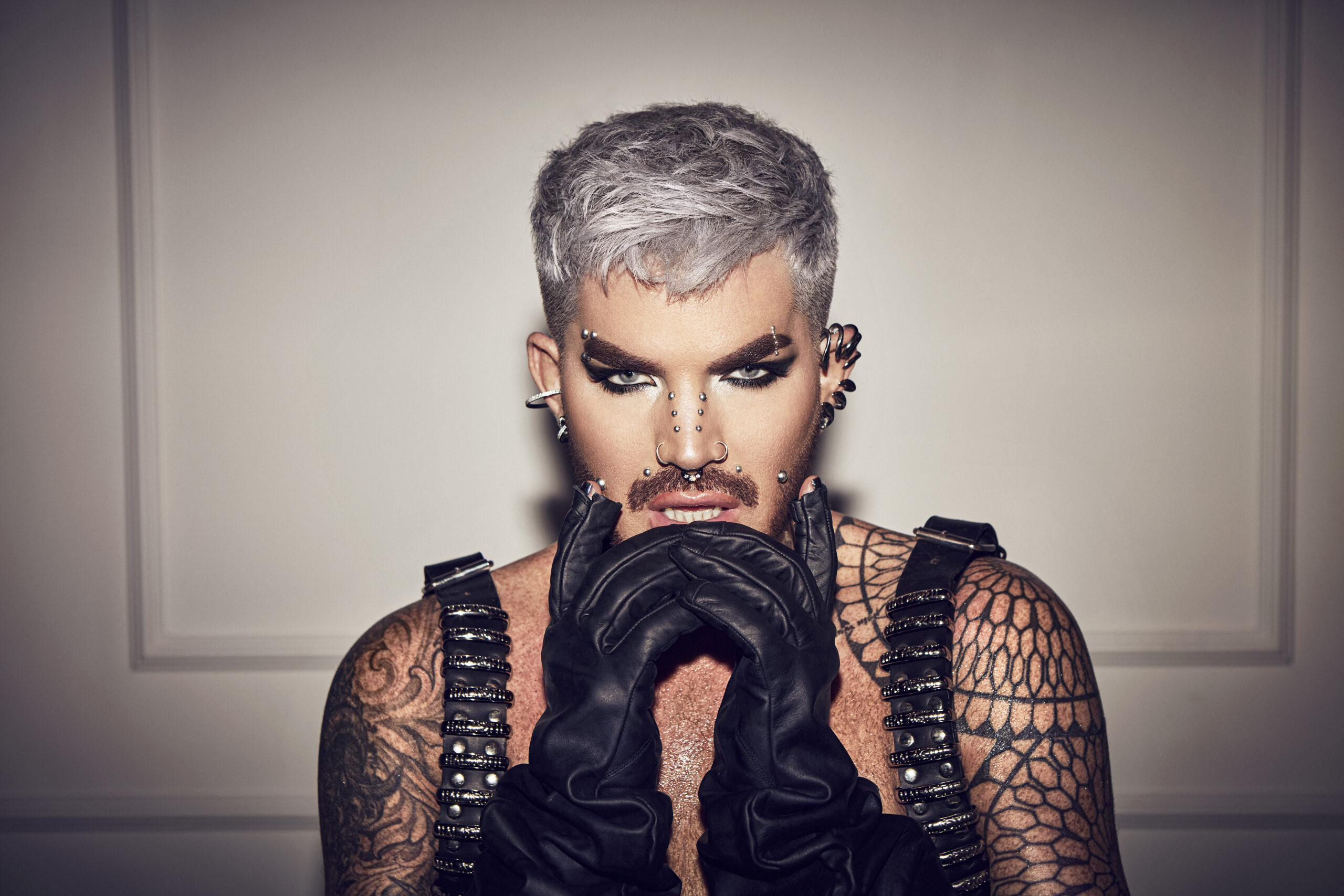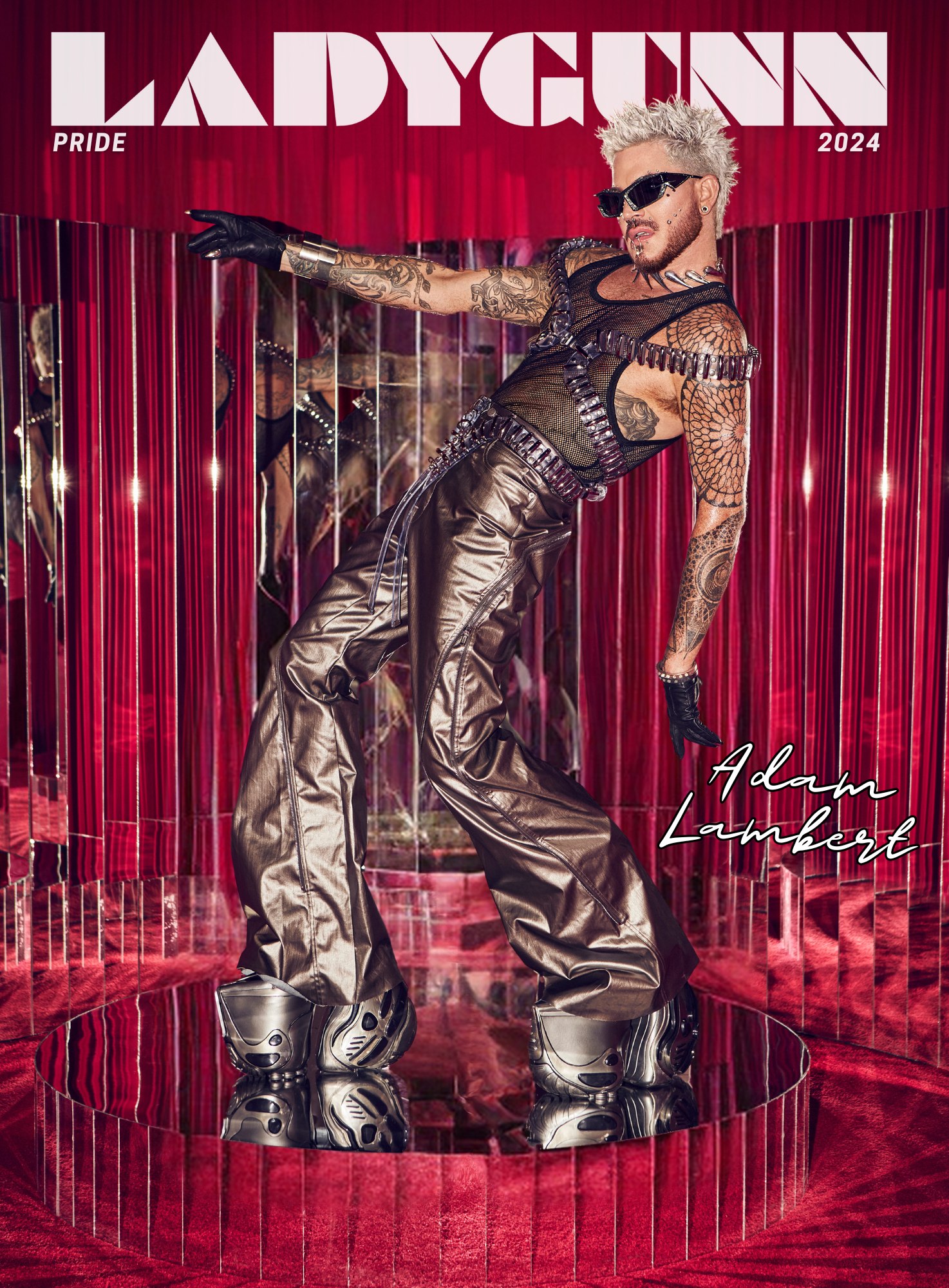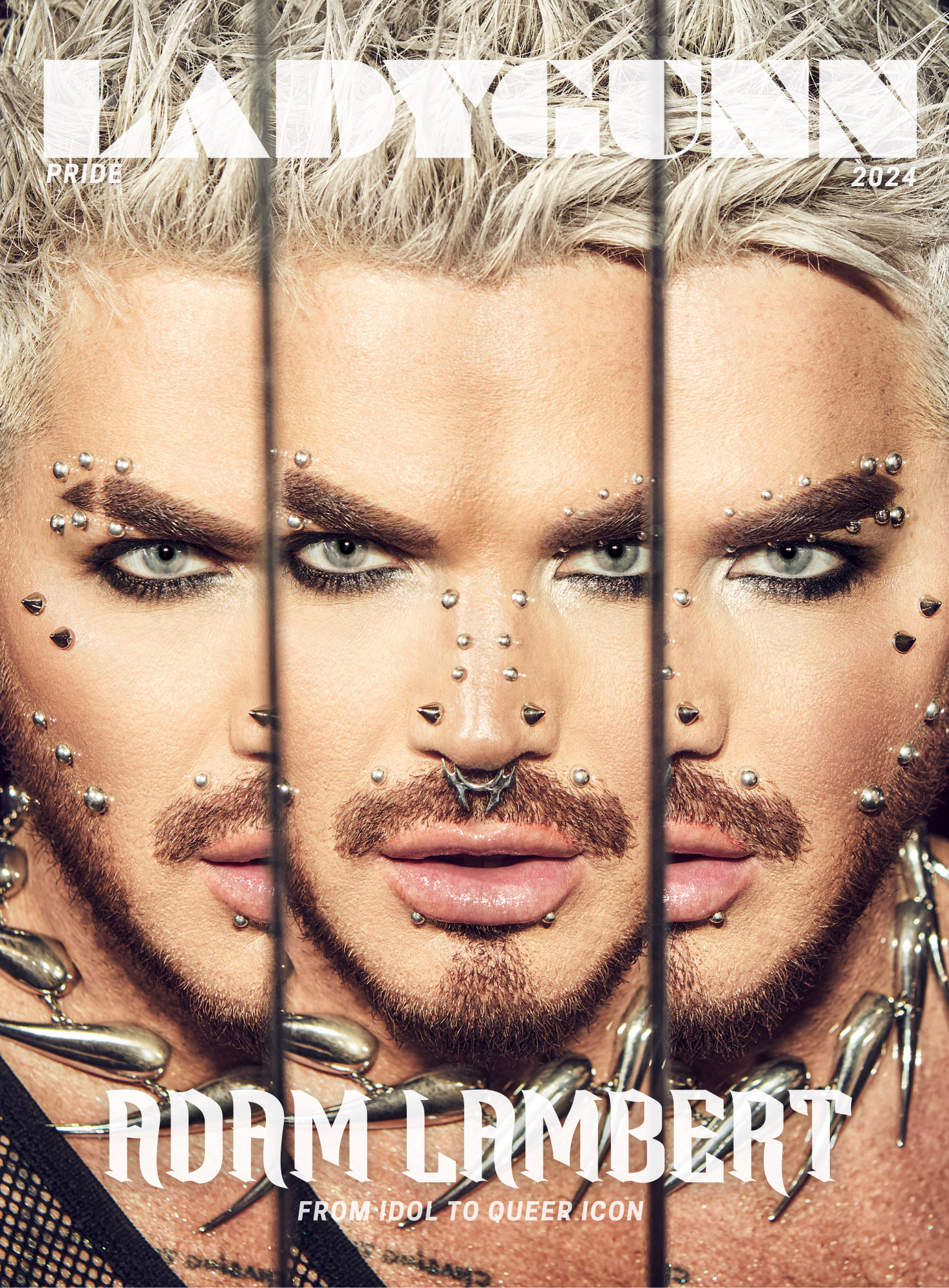
ADAM LAMBERT: CREATIVE FREEDOM AND SEXUAL LIBERATION IN ‘AFTERS’
In conversation with Slayyyter
Photographer & Creative Direction / Vijat Mohindra
Stylist / Phil Gomez
Glam / David Velasquez
Set Design / Eamonn McGlynn
Copy Editor / JoAnn Zhang
Graphic Design / Pearl Zhang
Producer / Leah Blewitt
Location / The Powder Room Studios LA
Adam Lambert, a trailblazing queer pop star of the 2010s, has remained active and influential in multiple arenas. He hosts the newly released documentary Adam Lambert: Out, Loud, and Proud, which explores the history of the UK queer music scene. In addition, he will be a judge on the upcoming season of The Voice Australia and is preparing to release his next EP, Afters, in July. Today, however, Adam is in the interviewee’s chair, sharing insights on love, creative freedom, and his proudest moments in an exclusive conversation with Slayyyter for a special Pride feature.
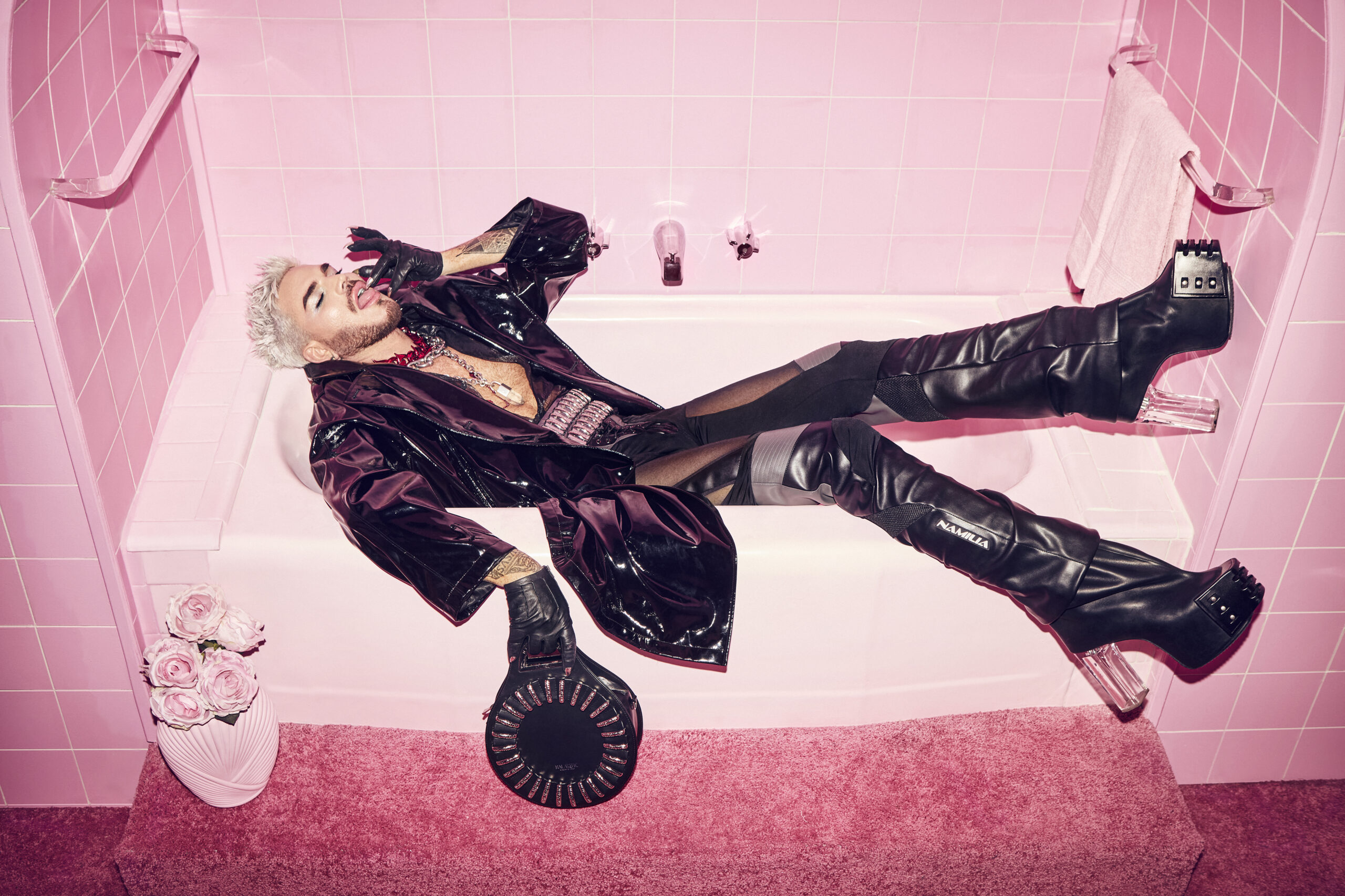
Slayyyter: Hello, hello! I’m so excited to talk to you today and discuss all this music. I feel like I’m not the best interviewer, but I have some questions. I want to ask you about Afters and everything, but I’d like to start with this new chapter of music. I listened to everything—it’s like club bangers all the way through. I’m really excited about the direction you’re taking. What was the inspiration sonically? What have you been listening to that’s influenced this club music vibe?
Adam: You! No, seriously. I’ve been listening to a lot of good stuff, and it’s funny because I’ve gone into so many sessions and played a handful of your songs as references. I’m like, this is sick. I want to live in this world.
Slayyyter: That makes my heart burst!
Adam: Do we get a passport to Slayyyter?
Slayyyter: Yes! Girl, I’ll stamp it.
Adam: Honestly, I’ve always loved dance music. Before I was on TV or had a recording career, I was always listening to electronic music. Doing this feels like fulfilling a fantasy. It’s the stuff I love. When I auditioned for Idol, the producers kind of nudged me towards a classic rock path. I love classic rock, and it seemed like a path to success, especially as a queer person who liked wearing wild clothing. Back in 2009, doing the Bowie glam rock thing was a way to get permission to look like that for a mainstream audience. So, that’s the path I took, which led to Queen, which has been incredible. But in my own time, I listen to what’s happening now, not old classic rock. With this album, I feel so free to sing and write about whatever I want, which feels incredible. For years, I felt like I was playing a game to hang on to the splash I made on Idol. Now, it feels like an entirely different time where you can make the music you want, and the audience will find it.
Slayyyter: I feel like your artistry as a vocalist lends itself to house and club music. It’s nice that you can lean into a new genre and make these club-heavy songs. That kind of music feels like the soundtrack to a queer club night out.
Adam: That’s exactly what I wanted to do. I wanted to make music that sounded like an afterparty at my house. That’s why I called it Afters. This is the kind of music I’d put on, the songs that inspire me. It’s the mood my friends want when they’ve been out all night—they want to feel sexy, powerful, maybe meet someone. I think the pandemic slowing things down gave me more social time, and that social life inspired this music.
Slayyyter: Amazing. I love the title Afters. It encapsulates all the songs and everything you’ve put into it. I also love how it’s very sexual. I wanted to ask about the writing process where you can have that sexual liberation in your music now, in a way you couldn’t before.
Adam: Yeah, I realized I could pull the filter off. My first big splash was on national TV, with a very mainstream, middle America audience. There were moral boundaries I had to navigate. I even got in trouble when I kissed a guy on the American Music Awards, which was a giant controversy. I thought, “This is rock and roll!” All my heroes, like Prince, pushed boundaries. I noticed a double standard—Prince could be overtly sexual because he wasn’t gay. It’s human to talk about sex. Madonna was a big idol for me, pushing boundaries and taking risks. That’s what I want to do now.
Slayyyter: I love it. You’re coming out swinging with titles like “Lube” and “Wet Dream.” That sets the tone right away.
Adam: It’s not your American Idol album. My mom’s reaction was funny—she asked if people would be offended, and I said maybe a couple, but they don’t have to listen to it. I hope people get a kick out of it and feel inspired by it. I want my own liberation to encourage others to feel free and liberated. We released those songs in time for Pride in WeHo—why not?
Slayyyter: Amazing. How was performing everything for the first time? Did you notice the crowd’s reaction?
Adam: Those songs came out officially the day of the performance. I previewed “Wet Dream” on SoundCloud a few months before at a performance in Australia. Even though it hadn’t been fully released, people were jamming to it. Same with WeHo. “Lube” had just come out, and we did a good job teasing it online. I wasn’t sure how West Hollywood would react, but they were dancing and some knew the words. It was great.
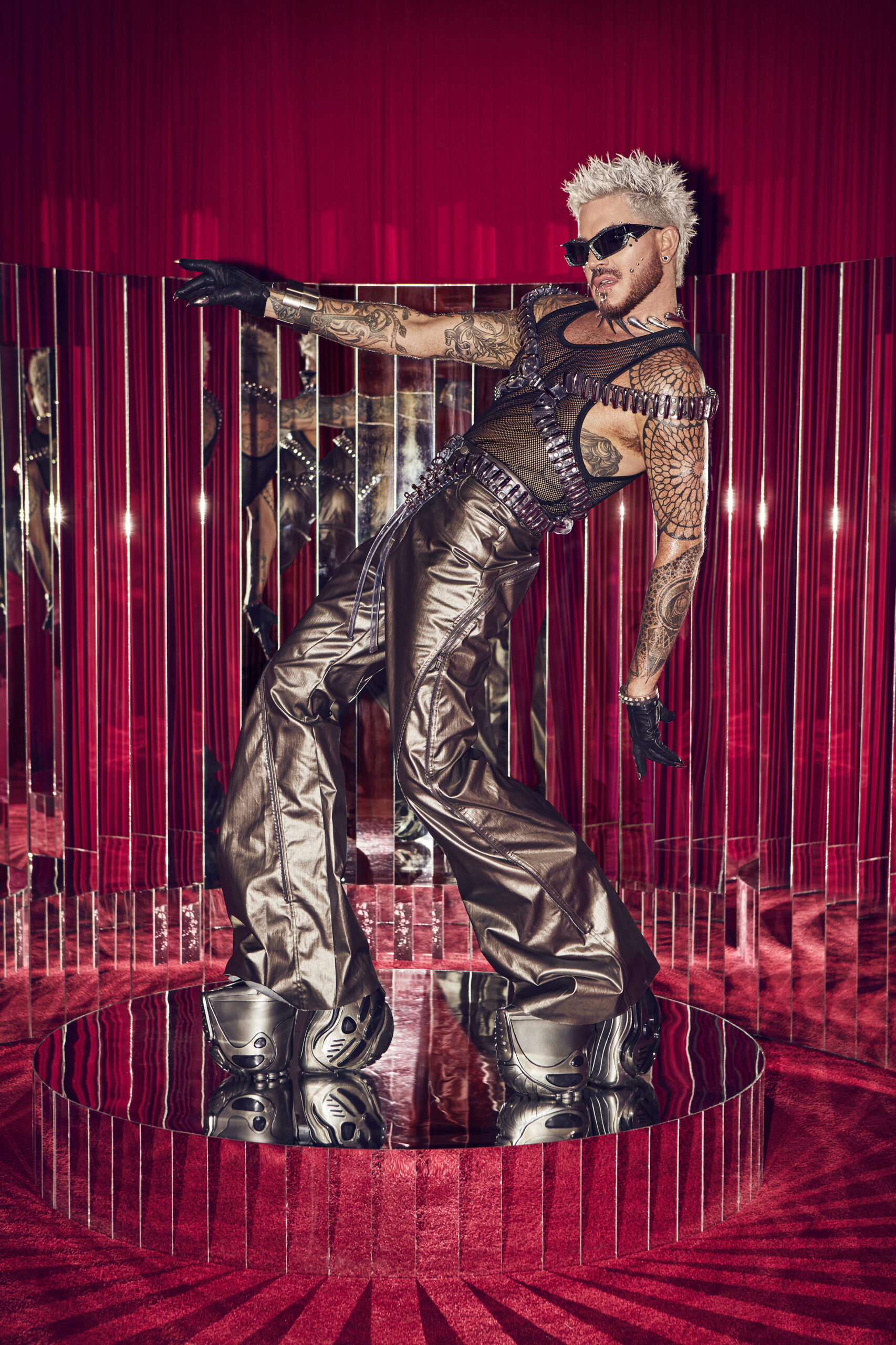
Slayyyter: I read that you were the first openly gay man to have a number one album on Billboard. Now, there are so many openly queer artists. Do you feel like you paved the way for them? Was it harder before?
Adam: I won’t take credit for paving the way alone; it was part of a bigger wave. When I was told I was the first openly gay man with a number one album, I was surprised. I thought, “What about Elton or George Michael?” But they had their number ones while closeted. It was a sign of changing times, which made me excited. Now we see incredibly talented and diverse queer artists getting their shine. It makes the frustrating parts of the journey feel more worth it. Seeing Lil Nas X perform on a network award show with male dancers and being sexy—it took that long for someone to go there. The industry’s support now is a sign of growth.
Slayyyter: That has to feel liberating, switching gears and making what feels authentic to you.
Adam: For sure. Gay men have always looked up to pop females because they didn’t have the double standard about sexuality. Artists like Madonna and Gaga have been bold about repping the gay community. Beyoncé’s Renaissance album celebrated the club scene and ball culture. Now, that niche is being celebrated, and as a gay man, I can step into that space thanks to these amazing female artists.
Slayyyter: Absolutely. I have another question. What drove you to explore bold sexuality in your music? When I was first finding my footing and making music, just being on the internet, I kind of had a bit of a double life. And I’ve always found it really tongue in cheek, making songs about sex. I mean, now, I would say my songs about sex are a little more sexy, but my early stuff is very like, I would almost kind of treat it as a sense of humor in music.
Adam: I mean, we did a writing session the other day; it’s being in a writing room with producers and other songwriters.There should be joy in it. There should be fun, you know, and I mean, the room we were in, we were laughing our asses off. That’s the creative part. And it was the same thing with writing “WET DREAM”– I was in a room with Sarah Hudson, Ferras, and Jay Hart . They’re friends of mine. I’ve known them for a long time. And we were just fucking around. You know what I mean? If you can capture that spirit you get with other writers in the song, you’re doing something right.
Slayyyter: Yeah. Because people will feel that when they hear it. They’ll feel the kind of joy between the lines as well.
Adam: Exactly, exactly.
Slayyyter: You have another song, another title, that I’m obsessed with– “CVNTY.” Tell me a little bit about the song.
Adam: This is a word I use constantly. And my friends use it constantly. If something’s Cunty, it’s badass. It’s fierce. It’s sickening it’s all of it. I loved the sentiment of, you did me wrong, I’m over you. And now I’m going to break your heart, and I’m going to look cunty when I do it.
Slayyyter: Love.
Adam: I just love the strength in it. You know, it’s like a little revenge jam. This is technically the first time I’ve produced my own vocal, which I was really excited to do. During the pandemic, I started messing around on my computer and got myself some good equipment, a good microphone, and taught myself how to do it, and started playing with vocal production and plugins and all that shit. So this is the first time that I’ve put something out officially that I recorded myself.
Slayyyter: Oh, that’s amazing. I mean, as a singer, that probably opens up your world. Well, I feel like “CVNTY” is a perfect Pride Month anthem, and we’re almost at the end of June so I feel like it’s a good kind of send off to put out a song called ”CVNTY,” I love it.
Slayyyter: What do you see being after Afters; what is like the next chapter for you?
Adam: I’m like, let me just keep making stuff and putting it out. I think that’s also what I’ve become aware is a bit different about music industry now. Before there was so much setup and so much pressure on every release and it’s easy to get sucked into the numbers game and the money and all that. I do think that we’re in a place now where there’s so many fewer rules and and formulas now. I have a new team that I’m loving working with. And they’re very new school. They’re very open and fluid with, well, let’s just put it out? I’m like, let me just keep making shit. And if it feels good, I want to put it out.
Slayyyter: I feel like with the culture of the internet and everything right now, a song doesn’t have to do well by what an old school maybe metric might be. But that doesn’t mean that people won’t find it on TikTok. You come from a world that’s almost foreign to me. I’m very much an internet kid.
Adam: The gatekeepers at the radio were like, we don’t want people to change the channel. That’s their bottom line. So a song had to be an earworm, and make people want to keep on their station and blah, blah. And I think there were probably a lot of those guys that were like, if it’s too gay, people won’t want to listen to our station. And I was like, okay, you know what, I’m gonna play the game. Because at the time, for me, it was all about winning and finding success as one of the first openly gay people in pop at that moment. I was like, I don’t want to lose my chance. It’s more important to stay in and be seen and prove my point that I can be successful.
Slayyyter: Being an artist is such a weird thing. I feel like everyone’s expected to shit albums out all the time.
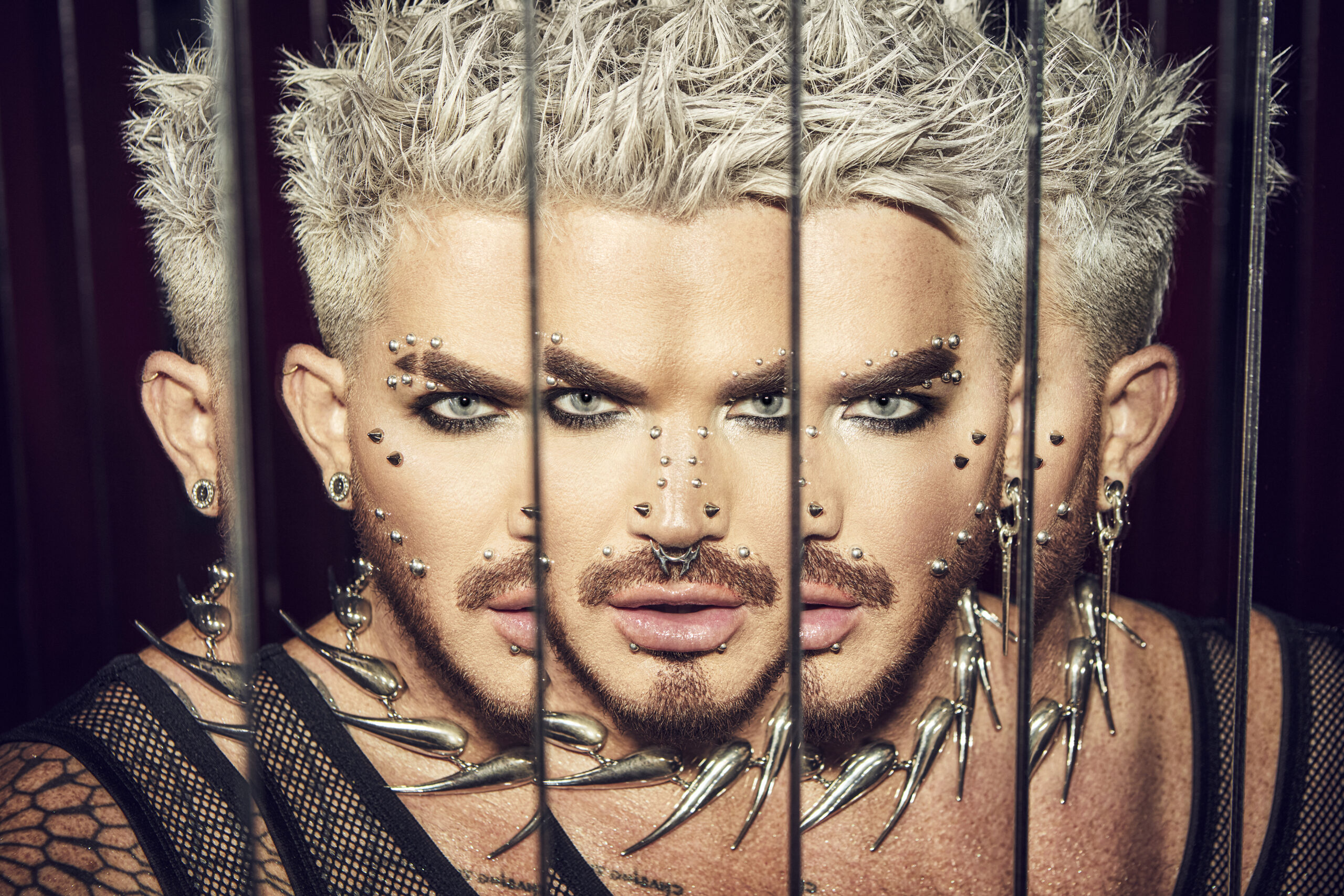
Adam: Being a true creative is to reflect where you’re at, personally. So regardless of the industry, and the rules, it also comes down to my own private personal headspace and my journey. I was working so hard and on the road all the time, and really devoting all my energy to my career for so long. I realized during the pandemic, when we had all this downtime to regroup and reflect, I had to get back to the drawing board of, why do I do this? What do I like about this? Like, where’s the love for it? I was a little burned out going into the pandemic, actually. I reprioritized a little bit and I did a lot of soul searching and digging for purpose and why I do what I do and what I want to do going forward. I think on a personal level, I dealt with some anxiety issues and some depression issues. I worked through it and I came out of that period feeling really good and feeling really revived and I also happened to have met my current partner during that time. Being in a relationship and finding real love and connection and intimacy– that really changes your headspace, you know, and I’ve been with that person since then.He and I have this amazing relationship. And I have a home life now. I have that as a foundation on an emotional level. I think that’s helping me feel stronger and feel more empowered to follow that gut feeling, you know?
Sayyyter: Oh, I love that. What love can do, right?
Adam: I’ve definitely had love in my life before this period, but this is probably my longest relationship. And I think that true intimacy and partnership are incredible. They’re incredible, especially for people like us who are putting ourselves out there. So much of my worth was wrapped up in, does the audience love me? And that can be a great thing. But it can also become a bit of a loop. You know, that’s not real. Getting back into a place of real intimacy helped me build up. It also, as a writer, gives you a lot to write about.
Slayyyter: Touching on depression and anxiety, I feel everyone was going through it, pandemic wise. Being in this industry, it’s easy to fall into those like anxiety traps and whatnot. It’s nice to see that you are just making what you want to make. And taking control of everything. There’s like a sense of being in the driver’s seat of this project.
Adam: I hate being told what to do. I really hate it. That can become so like debilitating and discouraging. Part of my journey was also finding the right people to work with, so that I could have that space to feel empowered, you know? It takes a long time sometimes to figure out the business part of it, what your setup should be to best support you.
Slayyyter: Out of all these years, all these iconic moments you’ve had, what would you say is your proudest achievement?
Adam: Ooh. I mean, I’m proud of the fact that I’m still in the game. I’m still getting to do new projects. Because at one point in time, coming off of a big TV show, getting signed to a record deal– I thought, okay, when’s the other shoe gonna drop? I definitely had some impostor syndrome stuff going on in my head where it was like, is this real? Is this something that’s going to get pulled out from under me any minute? I would constantly be thinking, I have to prepare myself for when this all goes away. And I’m really proud of the fact that it hasn’t, that I get to keep doing it. And then I carved out my lane. I’m really grateful for that, actually, because I didn’t think that was going to happen. I thought, there’s gonna be a point where you’re gonna have to find something else to do. I haven’t had to do that. And I love the fact that I’m still getting to make music and especially now, getting to make the music that I want to make 100% and not having to follow somebody’s rules.
